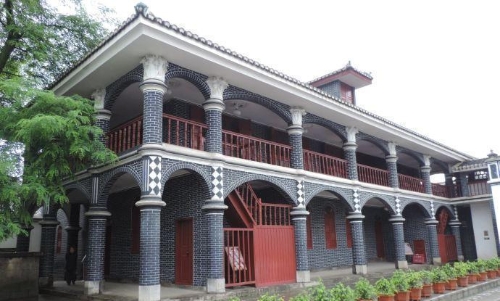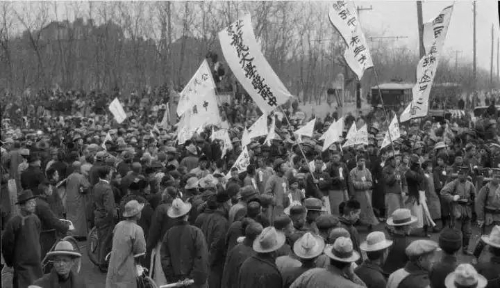1935
2021-04-26 07:08:51
January 15-17,1935
An enlarged meeting of the Political Bureau of the Party Central Committee was convened in Zunyi. Attending the meeting were members of the Political Bureau Mao Zedong, Zhang Wentian, Zhou Enlai, Zhu De, Chen Yun and Bo Gu and alternate members Wang Jiaxiang, Liu Shaoqi, Deng Fa and He Kequan. The meeting was also attended by leading members of the Red Army Headquarters and various army groups Liu Bocheng,Li Fuchun,Lin Biao,Nie Rongzhen, Peng Dehuai, Yang Shangkun, Li Zhuoran as well as Deng Xiaoping, secretary-general of the Party Central Committee. Li De (Otto Braun), military adviser of the Communist International to China, and his interpreter Wu Xiuquan attended the meeting as observers. At the meeting the mistakes made by the Central Committee in guiding military operations during the cam- paign against the enemy's fifth “encirclement and suppression” and since the start of the Long March were exposed and criticized, Bo Gu's mistake in defending himself in his report for the failure of the campaign was repudiated, the “General Resolution on the Fight Against the Enemy's Fifth Campaign of 'Encirclement and Suppression”of the Central Com- mittee of the Chinese Communist Party was adopted and some necessary organizational adjustments were made. The resolution explicitly pointed out that the Red Army's failure in its campaign against the enemy's fifth “encirclement and suppression” and the heavy losses it suffered after leaving the Soviet areas should be attributed chiefly to the grave mis- takes committed by Bo Gu and Li De in their direction of the military operations. The meeting affirmed the fundamental operational principles formulated by Mao Zedong and others for the Red Army. It elected Mao Zedong member of the Standing Committee of the Political Bureau, deprived Bo Gu and Li De of their supreme military command, decided that Zhu De and Zhou Enlai, principal leaders of the Military Commis- sion of the Central Committee, remain in command of military affairs, and entrusted Zhou Enlai with the responsibility of making the final decision with regard to military affairs on behalf of the Party. In the course of the march after the meeting, the members of the Standing Committee divided up the work among themselves in the light of the spirit of the meeting,with Zhang Wentian holding responsibility in general in place of Bo Gu. After that, the Military Commission decided to set up the Front Headquarters with Zhu De as commander and Mao Zedong political commissar. Then, Mao Zedong, Zhou Enlai and Wang Jiaxiang formed the Group of Three to take charge of military opera- tions.Thus, the Zunyi Meeting ended the rule of Wang Ming's"Left” adventurism in the Central Committee and established the correct lead- ership of the new Central Committee represented by Mao Zedong.It was a meeting at which the CPC laid down its political line, principles and policies independently by applying the basic principles of Marxism- Leninism.Saving the Party and the Red Army at an extremely critical moment, it constituted a turning point on which hinged their survival in the history of the CPC and marked the maturity of the Party from its infancy.
December 9,1935
With national crisis deteriorating every day, several thousand patriotic students, led and organized by the CPC Provisional Working Committee in Beiping (Beijing), broke through KMT government's reign of terror and held a forceful demonstration for resistance against Japan and for national salvation. They shouted “Oppose the North China Autonomous Administration!” “Down with Japanese imperialism!” “Stop the civil war and unite against Japan!” and other slogans. On the 16th, over 10,000 students and citizens of Beiping held a mass rally at Tianqiao and staged a demonstration on a still larger scale. This movement, known as the
December 9th Movement, won the warm support of the people all over the country and brought about a new upsurge across the land for resistance against Japan and for national salvation.


